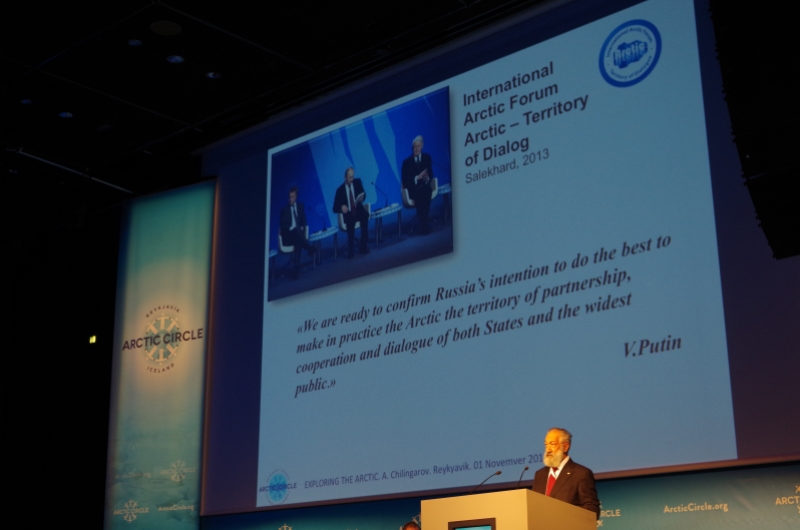
If 2013 was a year of expanded Arctic cooperation, perhaps best highlighted by the acceptance of five Asian states as observers in the Arctic Council, then 2014 was a year of strained Arctic cooperation. While the fallout over Russia’s incursions into Ukraine and its annexation of Crimea did not cause multilateral diplomacy in the Arctic to grind to a halt, it did put it under severe pressure. Meetings of the Senior Arctic Officials still took place, but the mood at times was frosty, particularly when Canada boycotted one such meeting in Russia. The Arctic may now be a “global Arctic,” but that comes with a price. Events that kick off in Kiev can have severe knock-on effects in the Kara Sea, where U.S. sanctions forced ExxonMobil to withdraw from its joint project exploring for offshore for oil with Rosneft.
Strained is thus the word I chose to sum up the Arctic in 2014 when interviewed by Eilís Quinn, who manages Radio Canada International’s Eye on the Arctic media project. I recently spoke with her for a radio program reviewing the events that transpired in 2014 in the Arctic. You can listen to the interview here.
Besides capturing the mood of 2014 in the north in one word, I also elaborated on what I believed to be the three most important events in the Arctic in 2014. They were:
1) Tensions between Russia and the West and the effects of sanctions on Russian offshore Arctic oil and gas development
2) The dramatic drop in traffic and cargo along the Northern Sea Route
3) The political crisis and snap elections in Greenland, and the victory that reigning party Siumut eked out
Listen to the show for a more in-depth discussion of those three developments in the Arctic, along with other questions such as the most under-reported story in the Arctic in 2014.
So what will 2015 have in store for the north? For starters, the Canadian chairmanship of the Arctic Council will culminate in the May ministerial meeting in Iqaluit. Once that gathering of Arctic leaders concludes, the United States will take the helm. It’s possible that American leadership could redirect the multilateral organization’s attention towards climate change, echoing the themes of the previous U.S. Arctic Council chairmanship from 1998-2000. Then, the U.S. launched the Arctic Climate Impact Assessment, whose results were first published in 2005. If Washington, D.C. choose to take a similar tack over the next two years, then it would then be dialing down the Canadian focus on economic development for the people of the North and instead put the issue of warming temperatures back on the front burner. This strategy could also dovetail with the prominence climate change will likely have next year. In December 2015, the United Nations Framework Convention on Climate Change’s will hold a summit in Paris. Jeffrey Sachs, the renowned Columbia economics professor and champion of sustainable development, has warned that this conference will be “our last chance for a safe planet.”
